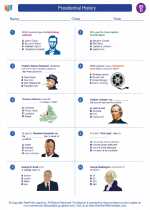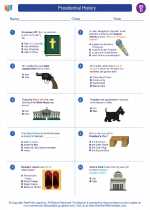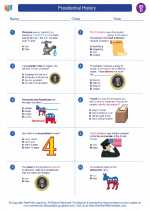Franklin D. Roosevelt
Franklin Delano Roosevelt, commonly known as FDR, was the 32nd President of the United States, serving from 1933 to 1945. He is best known for his leadership during the Great Depression and World War II. FDR's presidency had a profound impact on the United States and the world, and his policies and programs, known as the New Deal, transformed the role of the federal government in American society.
Early Life and Education
FDR was born on January 30, 1882, in Hyde Park, New York, into a wealthy and politically influential family. He attended Harvard University for his undergraduate studies and later studied law at Columbia University. However, he was not particularly interested in practicing law, and instead, he entered politics.
Political Career
FDR began his political career as a state senator in New York and later served as Assistant Secretary of the Navy under President Woodrow Wilson. In 1920, he ran as the Democratic Party's vice presidential candidate. He contracted polio in 1921, which left him paralyzed from the waist down, but he continued his political career despite his disability.
Presidency
When FDR became president in 1933, the United States was in the midst of the Great Depression. He implemented a series of programs and policies aimed at providing relief, recovery, and reform, which became known as the New Deal. These initiatives included the creation of government agencies such as the Works Progress Administration (WPA) and the Social Security Administration, as well as economic regulations and public works projects.
World War II
Although FDR initially sought to maintain neutrality, the outbreak of World War II in Europe and the attack on Pearl Harbor in 1941 led the United States to enter the war. FDR's leadership during the war was instrumental in mobilizing the nation's resources and coordinating the Allied war effort. He also played a key role in shaping the post-war world through the establishment of the United Nations.
Legacy
FDR was elected to an unprecedented four terms as president, but he passed away in 1945, shortly before the end of World War II. His legacy includes his leadership during two of the most challenging periods in American history, as well as his transformative impact on the role of the federal government and the social safety net. His wife, Eleanor Roosevelt, was also a prominent figure in American politics and an advocate for human rights.
Study Guide
- When was Franklin D. Roosevelt born?
- What were the key elements of FDR's New Deal?
- How did FDR's presidency impact the United States during World War II?
- What was FDR's legacy as a president?
[Franklin D. Roosevelt] Related Worksheets and Study Guides:
.◂Social Studies Worksheets and Study Guides Fourth Grade. Presidential History

 Worksheet/Answer key
Worksheet/Answer key
 Worksheet/Answer key
Worksheet/Answer key
 Worksheet/Answer key
Worksheet/Answer key
